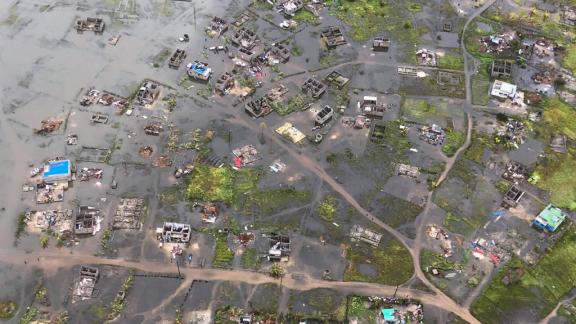Updated 29 April
Cyclone Idai tore through Malawi, Mozambique and Zimbabwe on 14 March, leaving hundreds dead, thousands of homes destroyed and almost 2 million impacted. Among those affected by the cyclone are close to 75,000 pregnant women, of whom 43,000 are expected to give birth during the next six months.
IPPF, along with Member Associations (MAs) and partners, are on the ground in Malawi and Mozambique to assess the needs and to deliver healthcare services to those in dire need.
The impact of so far
Malawi
The Government of Malawi confirmed the current death toll at 59 with close to 867,000 people impacted by the cyclone. More than 87,000 are currently displaced.
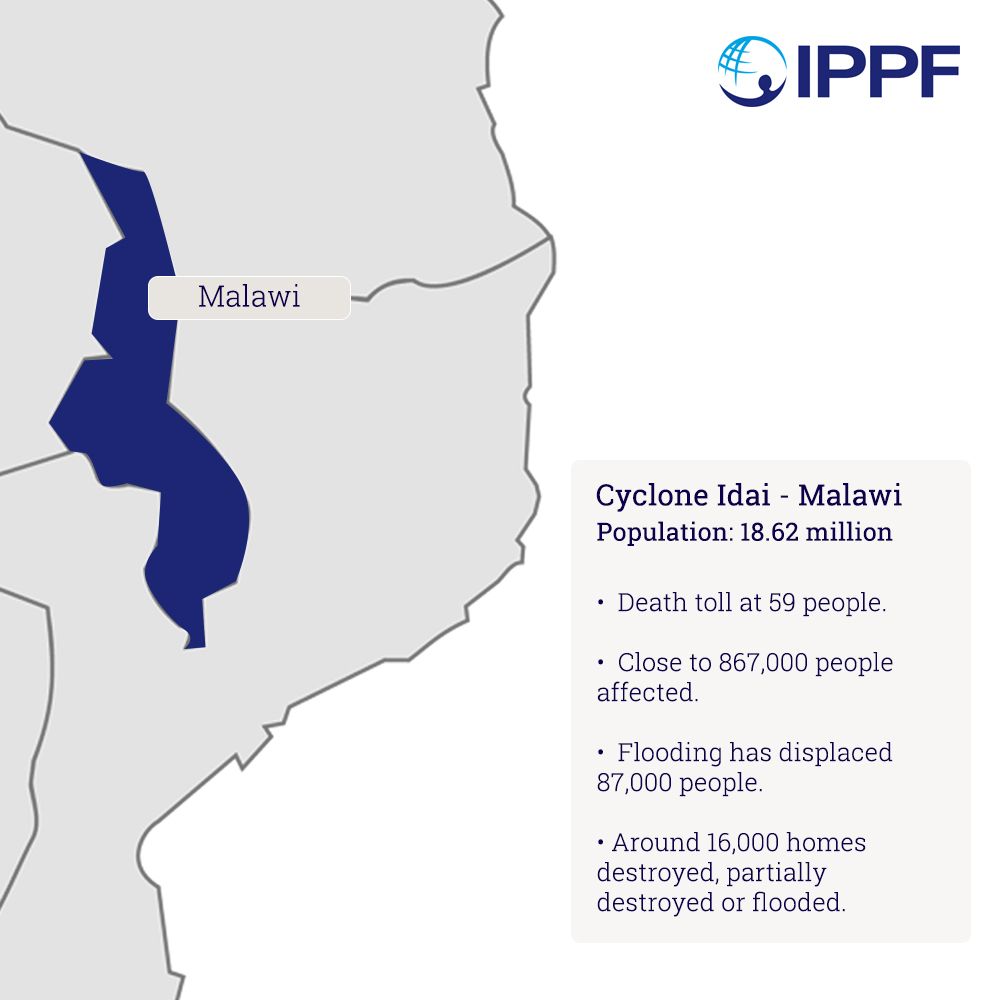
Mozambique
In Mozambique, the city of Beira – home to over 500,000 people – was hit the hardest by Cyclone Idai, with the government declaring a cholera outbreak in the city on 27 March. The cyclone has damaged and destroyed close to 100,000 homes and has claimed the lives of over 500 people, the number still rising.
The Global Gag Rule
Though the Global Gag Rule did not directly deny funding for humanitarian work, the ripple effect has had a devasting impact on the capacity at our MAs like AMODEFA, when responding to humanitarian crises.
Due to the loss of funding from the GGR, AMODEFA had to close eight clinics and end programs including the sex worker outreach program in Beira – one of the worst affected areas from the cyclone. This has meant that instead of having a functioning program and staff, and volunteers to mobilize and on which to base the emergency response, AMODEFA only had one remaining staff member in Beira.
Recruiting and training new volunteers for the humanitarian response then requires spending extra money and time, resources that are already scarce. On top of this, there are reports of an increase in sex worker activity along the main truck corridor, an area with an existing HIV prevalence of around 15%. It is not uncommon for women to turn to sex work in the wake of an emergency in order to provide for their families.
Even if the GGR does not have a direct impact on humanitarian SRH funding, it certainly has an impact on the response capacity and lives of the affected population through reduced access to SRH services.
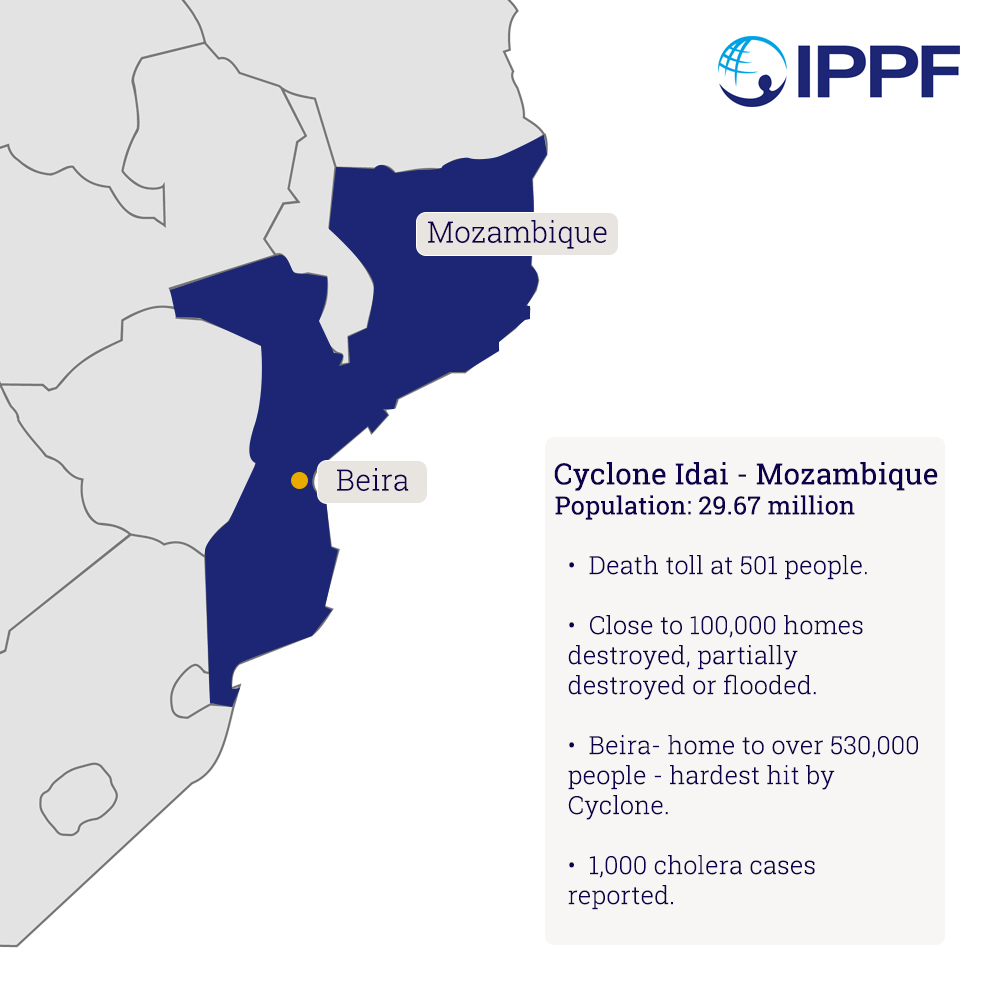
Our response
Malawi
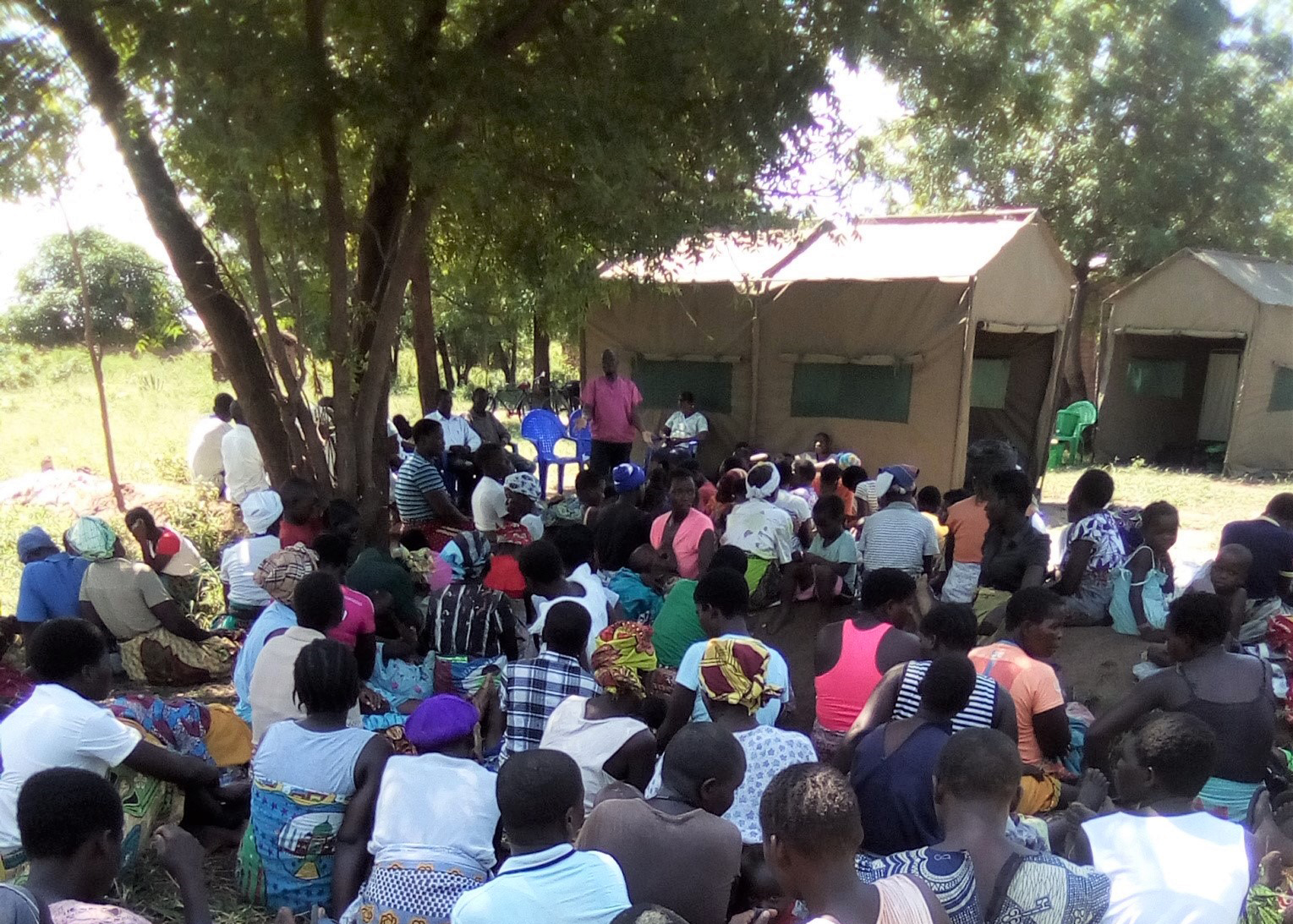
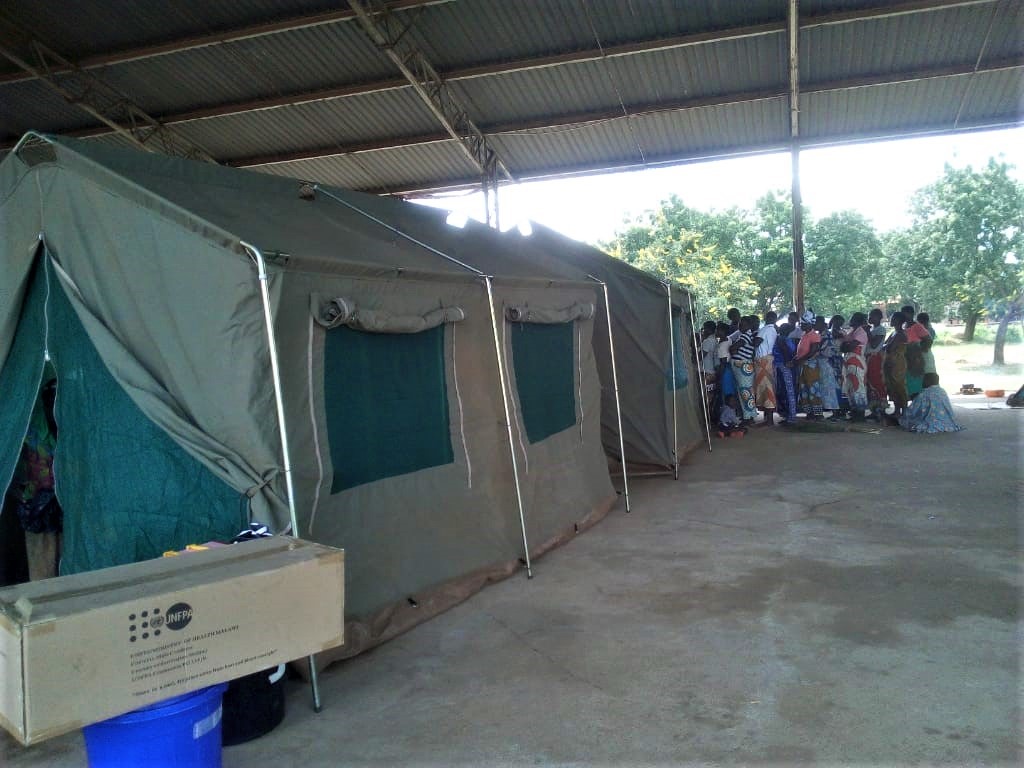
Update:
The conditions in the camps are very dire, there is no food, so some people are returning to their homes or to family members houses. Most of the camps are closing off due to this. Our MA has been providing outreach for over two weeks, through two teams, who have reached a total of 16 camps. FPAM is the only organization that is on the ground providing both SRH information and services right in the camps. Clients are accessing our services in large numbers. There is high demand for family planning, HIV testing, and cervical cancer screening in all the camps we have visited.
Additionally, there have been anecdotal reports to our team members that some girls and young women said that men with authority at the camp were coaxing girls to exchange food with sex.
The risk of STI transmissions and teenage unwanted pregnancies is high as most sites have no access to SRHR services due to long distances from to health facilities, coupled with low levels of knowledge on SRHR issues. This has been exemplified by people`s inability to understand basic SRH issues.
There is a strong need for long term, sustainable, access to SRH care and long acting contraceptive supplies.
IPPF’s MAs in Malawi and Mozambique are on the ground working with partners to help deliver life-saving healthcare. During times of crisis and humanitarian situations, vulnerable populations such as people living with HIV, children and pregnant women are at a greater risk due to disruptions in healthcare services and systems.
IPPF’s response in Malawi is being led by our MA – Family Planning Association of Malawi (FPAM) – who are working with partners like UNFPA to help deliver hygiene kits to affected areas. They are also co-ordinating efforts with the Malawi Association of Midwives on identifying and delivering essential maternal healthcare services.
Carlos Sitoe of Family Planning Association of Malawi said:
“Cyclone Idai has devastated Malawi. Some health centres have been submerged, and we are hearing reports that women are having to give birth at evacuation centres without skilled attendants. It is imperative that we are able to reach people affected by this disaster with sexual and reproductive healthcare. Our teams have started providing outreach services but will require many more resources to be able to sustain the response for months to come.”
We continue to operate throughout 16 camps, there has been 1,828 family planning services, 1,059 STIs services, total clients of 21,365 thus far.
Mozambique
The Associação Moçambicana para Desenvolvimento da Família (AMODEFA), IPPF’s MA in Mozambique, are currently on the ground assessing needs with local partners and delivering hygiene kits in a coordinated effort with UNFPA.
Santos Simione, Executive Director, AMODEFA:
“Mozambique has been severely affected by Tropical Cyclone Idai in the last few weeks. Our organisation is on the ground doing assessments and providing training to staff and volunteers in order to be able to reach the thousands of people that are in dire need of sexual and reproductive healthcare. In the coming weeks and months we will be providing life saving care including contraception, prenatal care and safe deliveries. Our commitment is to saving lives, minimizing suffering and restoring people's dignity.”
when
country
Malawi, Mozambique
Related Member Association
Family Planning Association of Malawi, Associação Moçambicana para Desenvolvimento da Família







